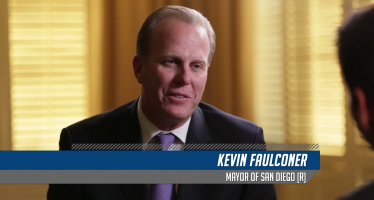Covered California required heath insurers to cancel plans

President Obama just apologized for the millions of insurance policy cancellations under the Affordable Care Act, usually called Obamacare. He also has blamed “bad apple” insurers for the cancellations.
But in California, critics of the program insist the cancellations were not made by the insurers, but by Covered California, the state’s implementation of Obamacare. California compelled insurers participating in the Covered California health exchange to cancel noncompliant individual policies.
“In California, insurers did not ‘choose’ to eliminate individual plans for the efficiency of one health-reform compliant platform, California forced it on them,” Craig Gottwals told me; he is a health care policy attorney and Obamacare expert with BB&T-Liberty Benefit Insurance.
He said Covered California didn’t want to leave to chance forcing people into the insurance exchanges. The San Francisco Business Times detailed how Anthem Blue Cross, Kaiser Permanente, Health Net and Blue Shield of California finally admitted their Covered California contracts required the cancellations. Other plans on the exchange are subject to the same contract language.
Covered California out-maneuvered insurers
Gottwals provided the specific Covered California contract language:
“Contractor agrees that effective no later than December 31, 2013, except as otherwise provided in State Law, it shall terminate or arrange for the termination of all of its non-grandfathered individual health insurance plan contracts or policies which are not compliant with the applicable provisions of the Affordable Care Act. Contractor agrees to promote ways to offer, market and sell or otherwise transition its current members into plans or policies which meet the applicable Affordable Care Act requirements. This obligation applies to all non-grandfathered individual insurance products in force or for sale by Contractor whether or not the individuals covered by such products are eligible for subsidies in the Exchange” (bold-face added).
Darrel Ng, a spokesman for Anthem Blue Cross, explained to the Times what this meant for “quality health plan” insurers. “All QHPs (of which we are one) had to sign that contract,” he explained.
Added Blue Shield spokesman Steve Shivinsky, “In order to participate in Covered California as a qualified health plan, the contract required us to cancel non-ACA-compliant plans on December 31. Blue Shield supports this policy because it assures a large and balanced risk pool of individual and family plan subscribers.”
Reimbursement
Gottwals said the singular insurance issue with medical providers is reimbursement — getting paid for the treatment they give. Mandated coverage is the only way to save money in the system and cut reimbursement costs.
“It’s a race to the bottom,” Gottwals said. “Doctors will opt out of [accepting] insurance because of low reimbursements. It’s not philosophical. The only leverage the government has is, ‘We’ll cut reimbursements.’ There’s no other way to to save money in health reform because of the mandated benefits.”
Interestingly, Gottwals said the average age of persons enrolled in Obamacare is 51-54. By contrast, in 2013 the average age of someone enrolled in pre-Obamacare insurance was 41, which is close to the U.S. median age of 37 years.
“This is significantly going to blow costs up, and taxpayers will be on the hook to pay for the difference,” said Gottwals. That’s because older people require more health care.
He said there is a bailout plan already written into the Affordable Care Act, which requires U.S. taxpayers to pay the difference between what care is covered and what is not. “It is going to go way over budget, and taxpayers are on the hook for 80 cents on every dollar,” said Gottwals. “It’s a bad deal, and bad for taxpayers.”
However, Obama continued to insist this week that the ACA still will help Californians and other Americans:
“But to finish the job, now what we’ve got to do is sign up those folks who don’t have health insurance and improve insurance for those who are under-insured, who don’t have very good insurance, and have been subject to the whims of the insurance company. And that’s what this is all about. And that’s the challenge that we’ve got over the next month, three months, six months, next year. And if we get that done — when we get that done — then we will have created a stable system in which there’s no reason why people shouldn’t be getting health care in this country.”
Related Articles
Blueprint Shows Budget Can Balance
MAY 14, 2011 This piece first appeared in City Journal’s new California Web site edited by Ben Boychuk. By STEVEN
Water shortage could bring electricity grid failure
California’s Big Three energy regulating agencies just warned in a joint letter to the California Water Resources Control Board that planned
VIDEO: San Diego mayor discusses whether the Chargers will stay or go
San Diego Mayor Kevin Faulconer describes his plan to keep the San Diego Chargers in San Diego — including the




